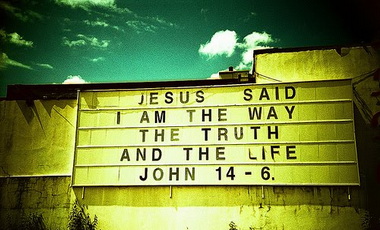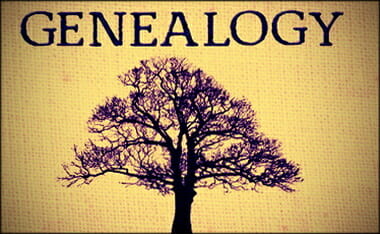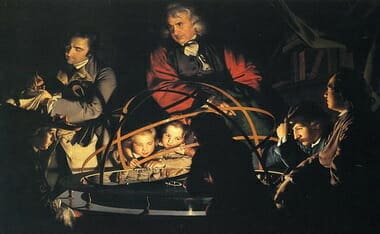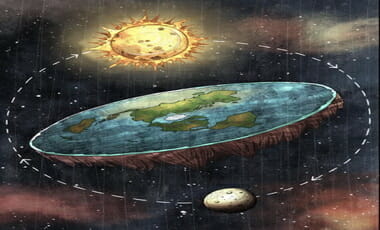A simple strategy that anyone can do to help prepare the church to face skeptical challenges and be ready to outreach to an unbelieving world. I’ve found these strategies to be effective. Integrating apologetics into normal church services is easy. Here is how to do it and some resources that will help!
Disclaimer: the following links are affiliate links. If you purchase materials through these links a small portion of that purchase will go toward helping me financially. It won’t cost you anything extra and it will help me keep making content online. It’s a win/win!
- Archaeology Study Bible (easy to incorporate into vs by vs messages)
- The Big Book of Bible Difficulties (this is the newly updated “When Critics Ask”)
- When Skeptics Ask
- Evidence That Demands a Verdict
Some of my recommended books are here as well:
RPT’s Apologetics 101
This will be a very basic introduction to why many — like myself — believe apologetics to be very important in the believers life. A “WHY APOLOGETICS 101,” so-to-speak.
What is the word “apologetic” even mean? How do we defining the word, Biblically. Apologetics is explaining to the non-believing friends, co-workers, family, the soundness of the Christian collection of beliefs about life and the universe in easy to express ways that allows co-operation of our created will and intellect with the Holy Spirit in evangelizing those around us. We are not robots under God’s divine hand (automatons) but individuals whom God works through keeping our personality intact in sharing the Gospel effectively and showing how Christianity stands in stark contrast to competing beliefs around us. The non-believer is not expected to interpret the data of history, psychology, and morality (let alone theology and miracles), as does the Christian. However, he must be given such data as the Christian interprets it… Otherwise he is not being witnessed to by a Christian.
✞ 1 Peter 3:15 – “… and always be ready to give a defense [or answer in some translations] to anyone who asks you for a reason for the hope that is in you.” Defense/Answer: is the Greek apologia, from which we get our word “apologetics,” meaning the careful, logical defense of the Christian faith showing its validity as the true saving gospel of God, our Creator and Savior. In effect Peter is admonishing believers to be always prepared to give an apologetic for the faith, especially when confronted by those who deny it and would destroy it if they could.
✞ Jude 3 – “although I was very eager to write to you about the salvation we share, I felt I had to write and urge you to contend for the faith that was once for all entrusted to the saints.” Contend: Should be “earnestly contend.” The Greek, epagonizomai, refers to athletes intensely agonizing in the grueling training for a coming contest. Thus Jude graphically stresses the urgency of defending the faith. The defense of the gospel is no indifferent matter to be left to a few specialists, but one to which all believers should be trained and committed.
✞ Philippians 1:7 – “…whether I am in chains or defending and confirming the gospel, all of you share in God’s grace with me.” Defending: A legal term referring to a formal defense as in a courtroom. Many modern evangelicals think the gospel does not need to be defended — just preached. Paul and Timothy are saying different here.
For instance, apologetics should stir ones knowledge base about their own faith and understanding towards positions Christianity naturally takes. Or, what are known as “truth statements,” i.e., “Jesus rose from the grave,” “God exists,” “God changed my life,” “Jesus is not like the Buddha,” “God is creator,” and the like. People often times will stop you at one of those points and ask you to elucidate. You should be prepared to.
“I suspect that most of the individuals who have religious faith are content with blind faith. They feel no obligation to understand what they believe. They may even wish not to have their beliefs disturbed by thought. But if God in whom they believe created them with intellectual and rational powers that impose upon them the duty to try to understand the creed of their religion. Not to do so is to verge on superstition”
Morimer J. Adler, “A Philosopher’s Religious Faith,” in, Kelly James Clark, ed., Philosophers Who Believe: The Spiritual Journeys of 11 Leading Thinkers (Downers Grove, IL: InterVarsity Press, 1993), 207.
Apologetics is one of the steps one takes (should take) in advancing their faith past milk by increases one’s “awareness” about the world in which they live and parts of it we should separate ourselves from. This includes as well aberrant thinking in our own camp.
“Instead of thinking of Christianity as a collection of theological bits and pieces to be believed or debated, we should approach our faith as a conceptual system, as a total world-and-life view…. Raising one’s self-consciousness [awareness] about worldviews is an essential part of intellectual maturity”
Ronald H. Nash, Worldviews in Conflict: Choosing Christianity in a World of Ideas [Grand Rapids, MI: Zondervan, 1992], 19, 9.
1) Apologetics helps with correct belief (truth) and in this regard is very important:
Believers may not fully comprehend or may have genuine misunderstandings or even limited exposure to and about Christian truth, but there are doctrinal parameters outside of which a person cannot cross without suffering apostasy and divine judgment. Embracing a false Christ and/or a false’ gospel leads to dire consequences. Paul’s warning to the Galatia church concerning a different gospel dramatically underscores the importance of sound (biblical) doctrine: “But even if we or an angel from heaven should preach a gospel other than the one we preached to you, let him be eternally condemned! (Galatians 1:8)
2) Christianity as a truth position, a worldview, necessitates an apologetic response:
Christian apologists must take the religions of the world seriously. The effective apologist will come to know other religions and their adherents with an insider’s mastery. Only then can he or she graciously expose a given religion’s flaws in light of essential Christian truth. Not an easy task for the apologist for sure, however, a well-done expose can have a powerful effect. This endeavor seems to be what Scripture calls for in terms of the apologetics enterprise. “We demolish arguments and every pretension that sets itself up against the knowledge of God, and we take captive every thought to make it obedient to Christ” (2 Corinthians 10:5).
3) Apologetics offers People, deservedly, the proper respect:
As creatures of God, all people bear the imago Dei and therefore have inherent dignity and moral worth. Every person consequently deserves respectful treatment regardless of race, sex, social class, political, or religious belief. Christians are called by God to guard the individual right of others to believe what they choose, whether their particular beliefs are wrong, absurd, or contrary to Christian truth. This regard basically amounts to respecting human personhood, volition, and individual moral responsibility. Christians should even tolerate the practices (religious and otherwise) of others, so long as those practices are legal, moral, and prudential. However, respecting another person’s beliefs must not be misconstrued as approving those beliefs. Christians are responsible to use their powers of persuasion to convince others of truth, especially the ultimate truth of, Jesus Christ. While being socially tolerant, Christians must at the same time be intellectually intolerant of conflicting truth claims.
(#s 1-3 are from: Kenneth Richard Samples, Without a Doubt: Answering the 20 Toughest Faith Questions [Grand Rapids, MI: Baker Books, 2004], 178-180)
Ravi Zacharias tells a story that is worth repeating, it is called “The Bell Tower”:
There’s a story of a man who used to go to work at a factory and every day would stop outside a clockmaker’s store to synchronize his watch with the clock outside. Seeing this routine, the clockmaker finally asked the gentleman, “Excuse me, sir, I see that every day you stop and adjust your watch with my clock. What kind of work do you do?” The man replied, “I’m embarrassed to tell you this, but, I keep the time at the factory nearby, and I have to ring the bell at four o clock every afternoon when it is time for the people to go home. My watch doesn’t work very well, so I synchronize it with your clock.” The clockmaker sheepishly responded, “I’ve got bad news for you. My clock doesn’t work very well either, so I synchronize it with the bell that I hear from the factory at 4:00 every afternoon.” …. Even a clock that doesn’t work may show you the right time twice a day…but it’s not because it’s keeping time.
Adapted from Ravi Zacharias, “Address to the United Nations’ Prayer Breakfast.”
Apologetics is analogous to wearing a pair of glasses:
The right eyeglasses can put the world into clearer focus, and the correct worldview can function in much the same way. When someone looks at the world from the perspective of the wrong worldview, the world won’t make much sense to him. Or what he thinks makes sense will, in fact, be wrong in important respects. Putting on the right conceptual scheme, that is, viewing the world through the correct worldview, can have important repercussions for the rest of the person’s understanding of events and ideas.
Ronald H. Nash, Worldviews in Conflict: Choosing Christianity in a World of Ideas (Grand Rapids, MI: Zondervan, 1992), 17-18.
Below is a wonderful graphic of what the person seeking to use and learn apologetics properly should look like. It is from the first chapter in a book I am currently reading and it has helped me to understand the delineations (or sub categories) to a healthy, well-balanced study of apologetics. Gregory Ganssle, in the before-mentioned book (Come Let us Reason: New Essays in Christian Apologetics, by-the-by, this is not a good introductory book on apologetics… it is a bit technical), points out the areas of study one might find him or herself in the “theological theme” (tt) of the pyramid:
… This angle [tt] includes a variety of topics, such as the scope of common grace, the nature of general revelation, and the effects of our sinful condition on our reasoning.
Exploring these topics theologically helps us develop a realistic understanding of what we ought to expect in our encounters with those who are not yet believers. Theological themes, then, are relevant to our thinking well about apologetics.

As one enters into studies on topics like these, red flags may appear in your reading general books by Christian authors. Does this mean you shouldn’t read these books or get information from such people. Not necessarily. It really depends how far they twist major doctrines of the Gospel [Bible]. For instance, would I tell a person (like my wife for instance) not to read Beth Moore? Of course not. I would however, as the spiritual leader of my household, explain some of my “red-flags” I encountered in reading her stuff and mention that an author highly recommended by her is a person I WOULD NOT read. (That being said, as I learn more about what is aberrant, I find my reading of these books has increased for my own personal apologetic studies, not as books that I incorporate into my walk.)
BONUS:
I love the opening portion about rigorous training and higher education and Sunday school. So important!
In this episode, Eli takes some time to talk about apologetics at the introductory level and speaks a little about how to teach it. He covers both apologetics and the apologetic value of theology.
I hope this short introduction to apologetics was and is helpful. There are three books I highly recommend as great starter points to both understanding the importance of apologetics as well as seeing the differing models of thinking in the world compared. These three resources are technical enough to invigorate the thinker as well as great introductions to the subject accessible to the layman.








































































